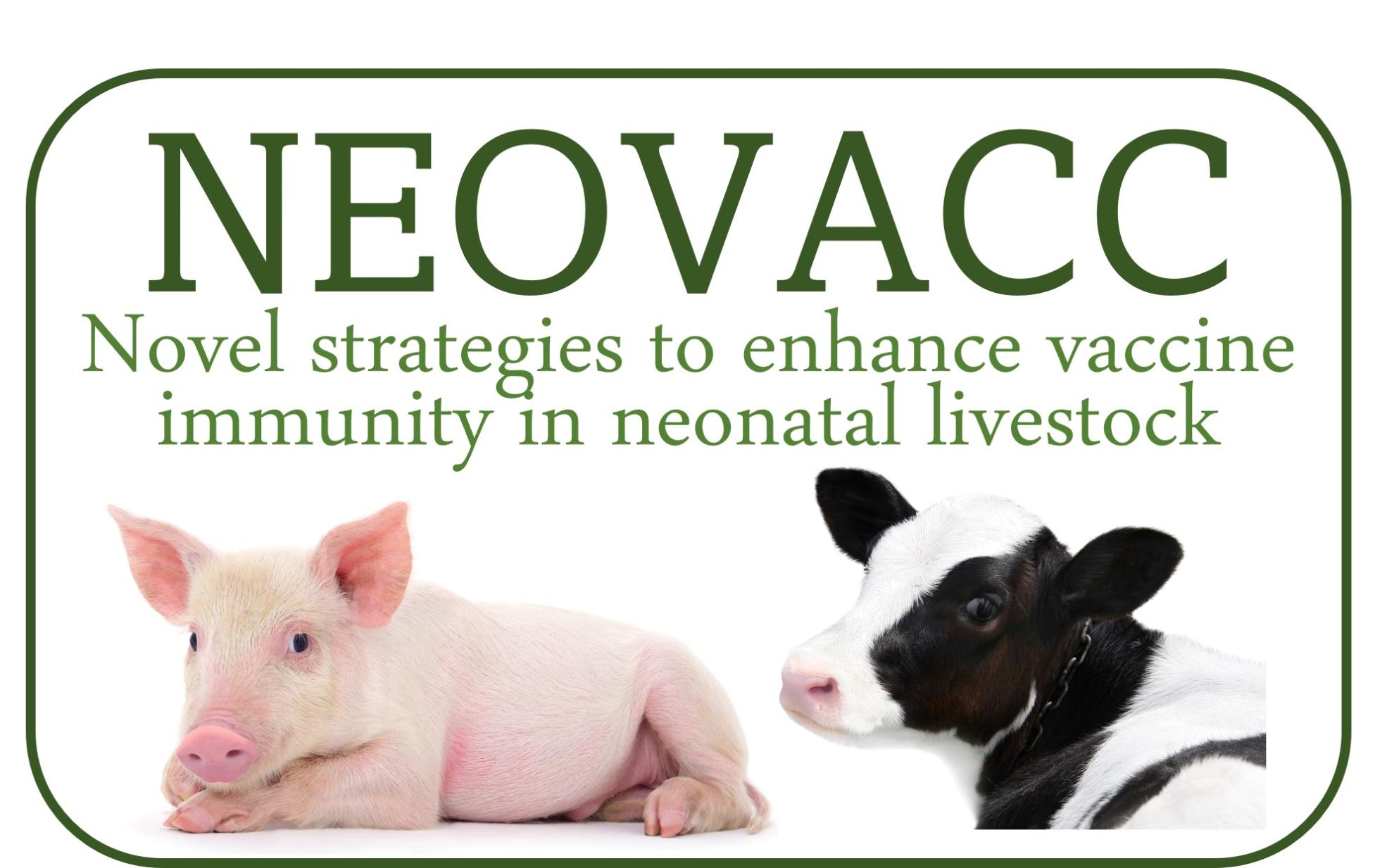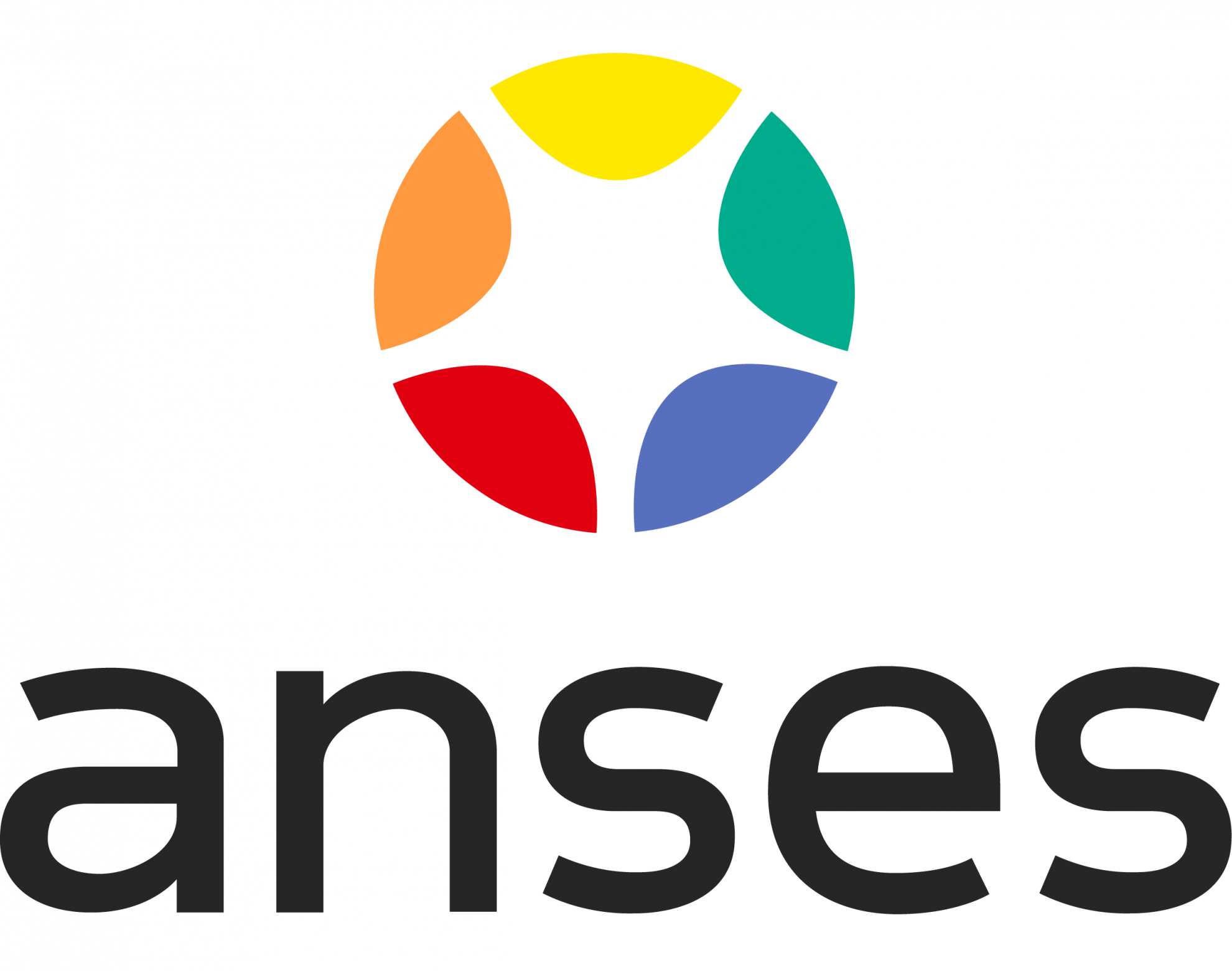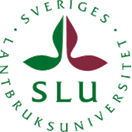Novel strategies to enhance vaccine immunity in neonatal livestock (NEOVACC)
NEOVACC is a major international collaborative project to evaluate vaccine strategies designed to enhance immune responses in neonatal animals.
Infectious diseases of livestock continue to cause a major financial impact globally, threatening food security and public health. Disease control measures comprise a combination of biosecurity with both preventative and therapeutic treatments. However, vaccination represents the most highly cost-effective tool to prevent, manage and even eradicate diseases.
Young animals are particularly susceptible to infectious diseases since they possess a naïve adaptive immune system. The mammalian immune system has evolved so that neonates acquire maternally-derived antibodies (MDA) through the ingestion of colostrum and milk. This provides passive immunity but MDA wane and are lost after weaning. It is therefore critical to immunise young animals to ensure active immunity is in place. However, MDA can interfere with vaccination leaving young animals susceptible to infection. There is therefore a need for new vaccine strategies to enhance immune responses in neonatal animals with MDA.
Our research
The NEOVACC project will evaluate novel strategies designed to enhance the effectiveness of vaccines in neonatal animals with MDA. We are focussing on bovine respiratory syncytial virus (BRSV) and porcine reproductive and respiratory syndrome virus (PRRSV) as they cause two major endemic viral diseases in cattle and pigs, respectively. In both these infections, MDA interfere with neonatal vaccination leading to high vulnerability at the time of weaning. The project combines complementary expertise in veterinary medicine, virology, immunology, protein engineering and vaccinology from six leading institutions and is structured with three complementary work-packages (WP):
WP1: Designing BSRV immunogens to exploit differences in antibody repertoires between adult and neonatal cattle.
We will identify epitopes on the pre-fusion (preF) protein of BRSV that are distinctly targeted by neonatal and adult antibody repertoires. Epitope-scaffold antigens will be anchored on N-nanorings, that are immunogenic carriers easy to produce in bacteria at low cost. These will be evaluated in MDA+ calves for protection against experimental BRSV challenge.
WP2: A DNA vaccine-based approach against PRRSV to counteract MDA interference.
We will generate DNA vaccines where PRRSV antigens are fused to dendritic cell (DC) targeting moieties that we have shown enhance immunogenicity. We will then test if a targeted DNA prime/modified live vaccine (MLV) boost vaccine strategy enhances cell mediated and antibody responses and increases vaccine efficacy in MDA+ piglets. Complementary in vitro experiments will be conducted using DC targeted antigens to understand how they counteract the MDA-negative effect on B-cell responses.
WP3: Engineering immune checkpoint inhibitors to enhance neonatal responses to vaccination.
Immune checkpoints are natural regulators of the immune system, crucial for maintaining self-tolerance and reducing immunopathological responses. Immune checkpoint inhibitors are highly effective cancer immunotherapeutics and are emerging as a novel class of adjuvants for prophylactic immunization. We will evaluate whether genetically engineering PRRS MLV to express peptide-based ICIs will potentiate vaccine responses of MDA+ piglets resulting in enhanced protection.
Find out more about the project here
Impact
We will develop and test tools and technologies for producing improved vaccines for two respiratory viral pathogens responsible for huge economic losses in the global pig and cattle industries. Current PRRSV and BRSV vaccines are weakly immunogenic and are affected by the presence of MDA. Efficacy is limited to a reduction in clinical disease rather than preventing infection. These imperfect vaccines do not suppress the circulation of virus and rather drive immune escape. Break-through infections occur in the face of vaccination, leading to disease and the requirement for antibiotics to treat secondary infections. Whilst the project will focus on these two diseases, the novel approaches employed to design vaccine antigens, to deliver DNA encoded antigens in a targeted manner to augment B cell responses, and to potentiate responses through immune checkpoint inhibition may be broadly applied, including to human clinical settings.
Who we are
| The PRRS Immunology and Immunogenetics research groups at The Pirbright Institute, United Kingdom. |  |
| The Molecular Immunology and Virology research unit at Institut National de Recherche pour l’Agriculture, l’Alimentation et l’Environnement (INRAE), France | |
| The Ploufragan-Plouzané-Niort Laboratory at Agence Nationale de Sécurité Sanitaire de l'Alimentation, de l'Environnement et du Travail (ANSES), France. |  |
| The Ruminant Medicine research group at the Department of Clinical Sciences, Swedish University of Agricultural Sciences.
|
 |
| The Laboratory of Protein Design and Immunoengineering at the Ecole Polytechnique Federale de Lausanne (EPFL), Switzerland.
|
|
| Oslo University Hospital, Norway.
|
Project Abstract
The NEOVACC project addresses the significant challenge of effective vaccination of neonatal animals in the presence of maternally derived antibodies (MDA). This is critically important since MDA inhibits immune responses of neonates to vaccination and as MDA wanes immunised animals remain vulnerable to pathogen challenge. NEOVACC will therefore evaluate novel vaccine strategies designed to enhance immune responses in neonatal animals with MDA.
We will focus on bovine respiratory syncytial virus (BRSV) and porcine reproductive and respiratory syndrome virus (PRRSV), as prime examples of endemic livestock diseases that require next-generation vaccines to improve control. We will explore a state-of-the-art structural vaccinology approach to design novel immunogens based on the BRSV pre-fusion (preF) protein for neonatal calves. We will determine whether discrete differences exist between maternal and calf antibody binding to epitopes on BSRV preF. We will then design and select BRSV preF epitope scaffolds which would not be recognised by MDA and evaluate their vaccine potential using our established BSRV challenge model.
The second approach aims to exploit DNA vaccination to overcome MDA interference. We will evaluate novel DNA-based vaccines encoding well-defined PRRSV antigens fused to moieties that target antigen to professional antigen-presenting cells and assess their ability to prime immune responses in MDA+ piglets and augment a subsequent modified live vaccine (MLV) boost. We will conduct a parallel in vitro investigation to better understand the ability of these novel constructs to circumvent MDA interference.
Finally, we will evaluate the potential of peptide-based immune checkpoint inhibitors (ICIs) to adjuvant responses to PRRSV MLV. By transiently blocking negative immunoregulation, we hypothesise that PRRSV MLV genetically engineered to express ICIs would allow neonatal animals to mount more robust immune responses. In addition to developing novel BSRV and PRRSV vaccine candidates, the approaches employed to design vaccine antigens, to deliver DNA encoded antigens in a targeted manner to augment B cell responses, and to potentiate responses through immune checkpoint inhibition may be more broadly applied, including to human clinical settings.
